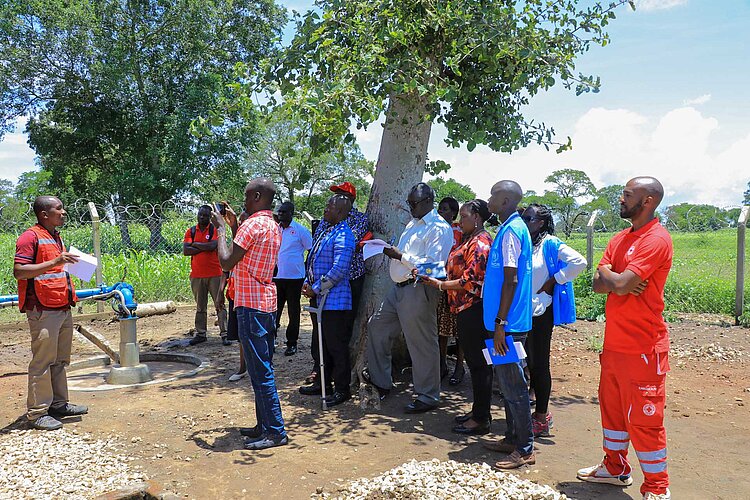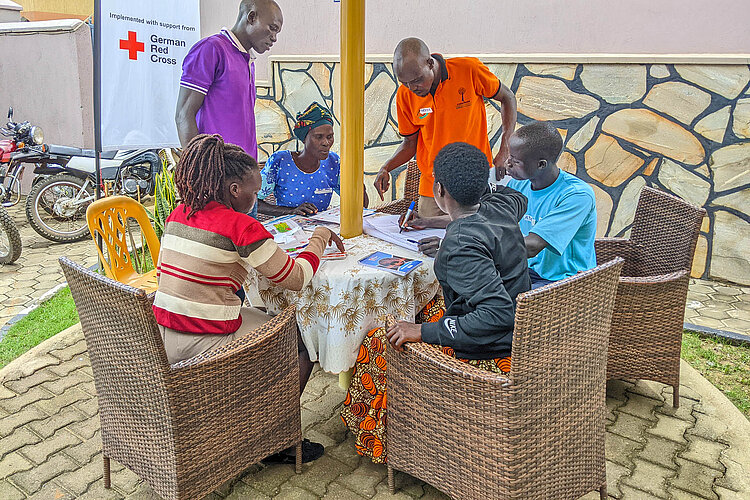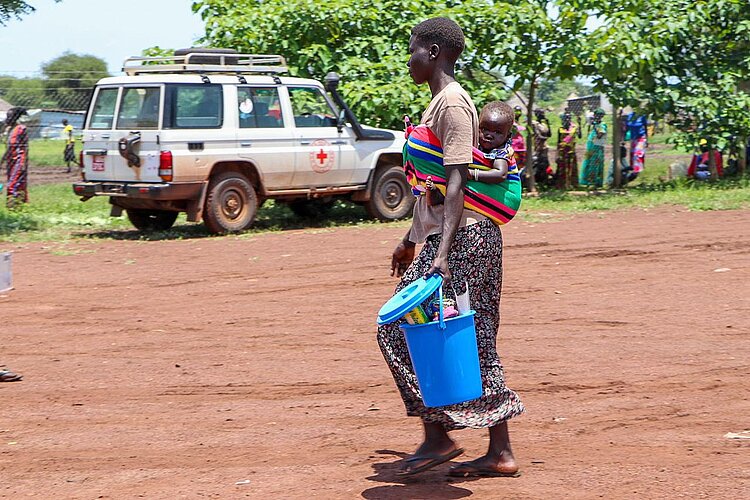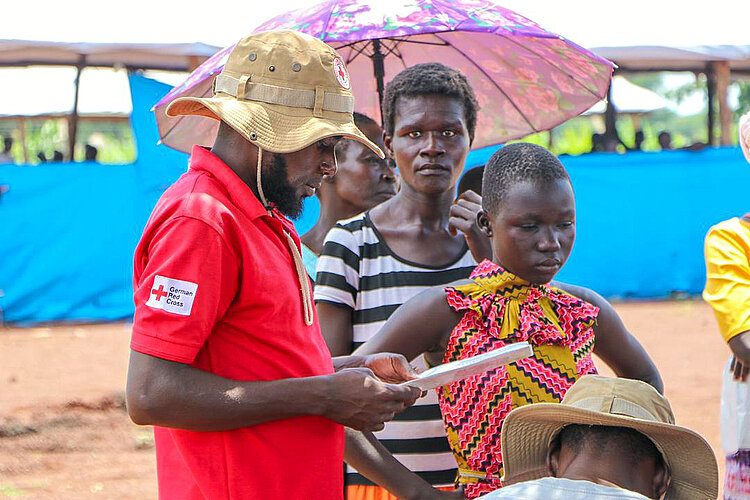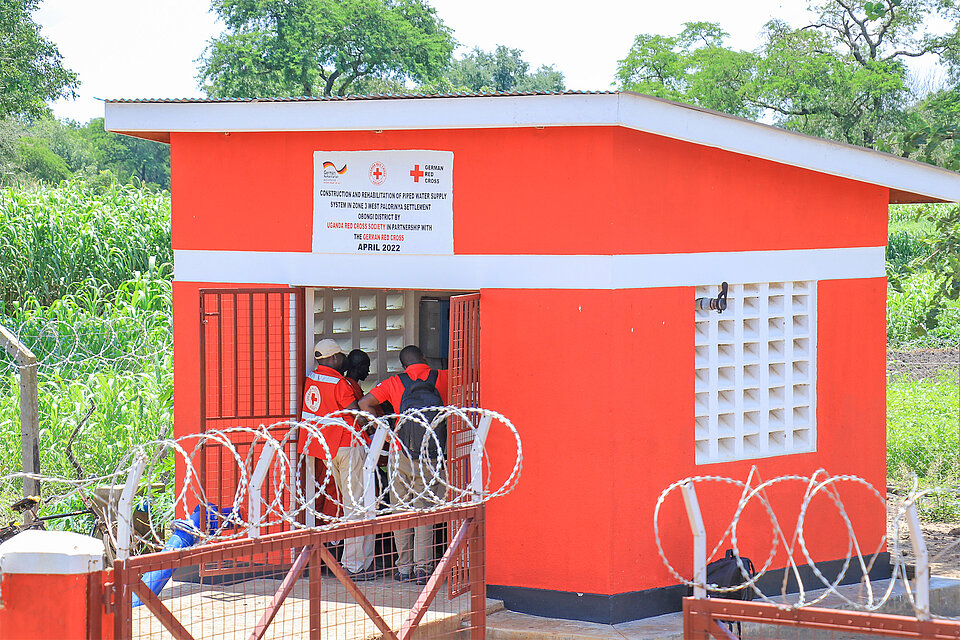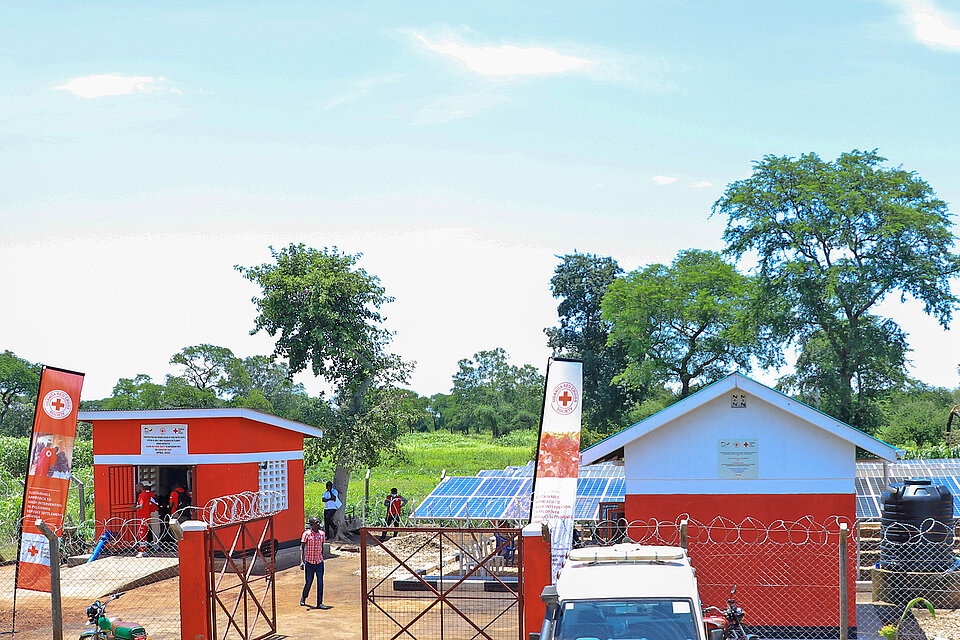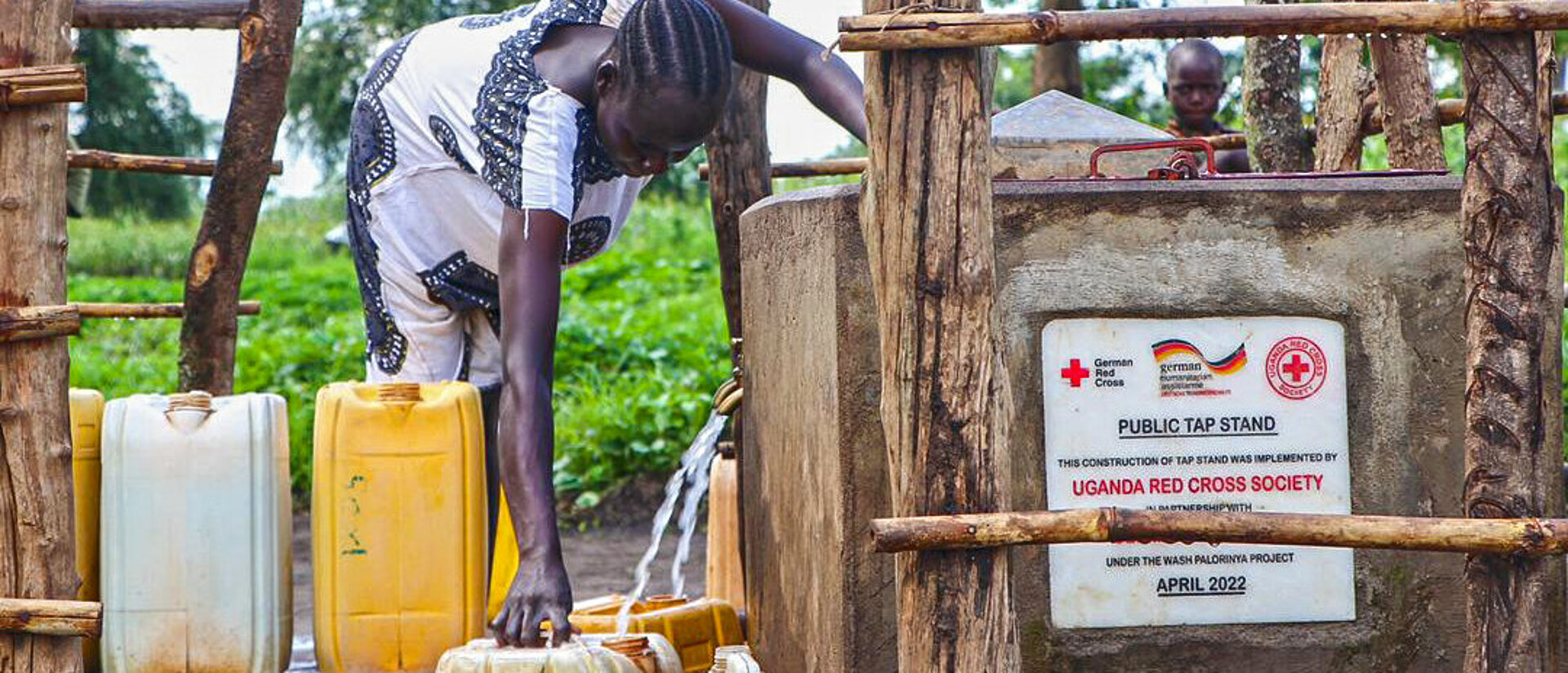
Water and health care for refugees
Uganda remains the largest refugee-hosting country in Africa, with numerous families forced to leave their homes due to conflicts in neighbouring regions. The demand for humanitarian assistance within the hosting communities and settlements is substantial. The German Red Cross is actively collaborating with the Uganda Red Cross Society to address crucial areas such as water and sanitation, health promotion, and disaster preparedness.
Humanitarian needs in the settlements
The arrival of approximately 1.5 million refugees from South Sudan and the Democratic Republic of Congo presents a significant humanitarian challenge for the nation. Over 80 percent of those in search of refuge are women and children, many of whom are without access to clean drinking water, food and hygiene essentials.
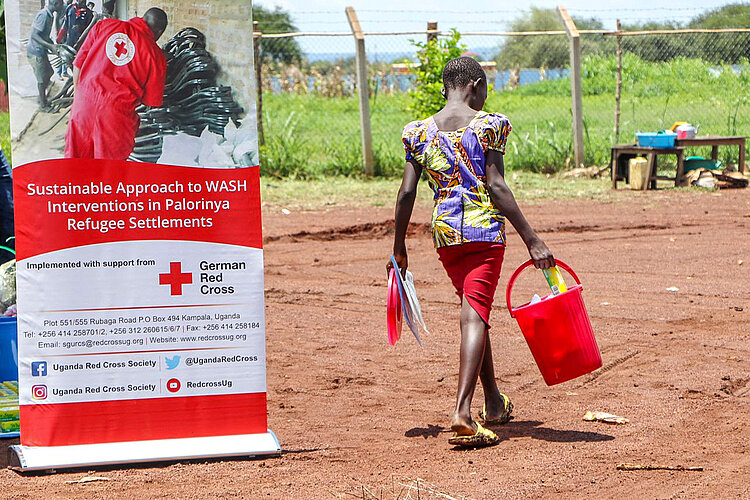
Insufficient Healthcare Provision
Within the host areas, inadequate hygiene and sanitation conditions are a major risk factor for the spread of diseases. Uganda remains particularly vulnerable to the occurrence of haemorrhagic fevers like the Ebola virus (EVD) and Marburg virus (MVD), as well as other illnesses including yellow fever, measles, hepatitis E, and cholera. However, the capacities to deal with epidemics and large-scale outbreaks are inadequate.
Enhancing Disease Detection through Community-Based Approaches
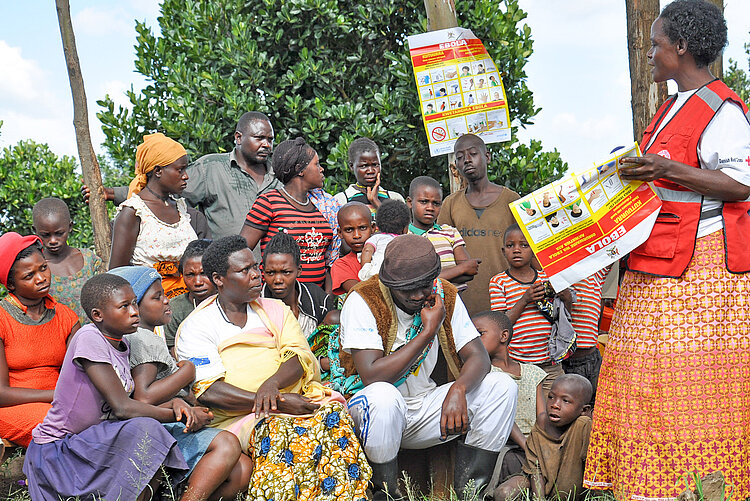
To enhance the well-being and safety of families, the German Red Cross (GRC), in collaboration with its partners within the International Red Cross and Red Crescent Movement, adopts a strategy known as "community-based surveillance." This approach aims to systematically monitor and report health-related incidents and their potential dissemination among community members.
Community members are trained to recognize signs and symptoms indicative of potentially infectious diseases, and they are encouraged to report any suspected cases promptly. Upon reporting, laboratory analyses are conducted to provide early warnings of potential outbreaks and to facilitate swift responses. This community-driven alert system holds particular significance in regions with limited or absent health infrastructure.
This grassroots monitoring effort not only fosters health consciousness among families but also empowers them to actively engage in preventive and protective measures.
Project Objectives
This project has a twofold objective: firstly, to bolster the capabilities of the Uganda Red Cross Society in community-based surveillance (CBS), disaster preparedness, and health promotion; and secondly, to contribute to the enhancement of water and sanitation conditions.
Overview of Activities
Volunteer and Staff Training
- Conducting training sessions for volunteers and staff members
- Organizing training for community-based water committees
- Providing training on water quality assessment and regular water testing by the Uganda Red Cross Society (URCS)
- Delivering training on hygiene awareness, disease prevention, and health promotion
- Offering capacity-building training for emergency response situations
Community-Level Trainings
- Carrying out education and hygiene measures in schools and communities
- Implementing disease prevention and health promotion activities within the communities
Equipment and Supplies
- Repairing hand washing facilities
- Procuring and distributing menstrual hygiene items
- Providing protective equipment (PPE)
Community based surveillance (CBS)
- Establishing a robust CBS system and forging connections with local health authorities
- Procuring and supplying the necessary materials and equipment for implementing health-promoting measures
Strengthening the Uganda Red Cross Society
As one of the largest humanitarian organisations in the country, the Uganda Red Cross Society (URCS) is one of the most experienced national relief organisations when it comes to managing epidemics and delivering humanitarian assistance. This expertise is particularly notable in the realms of hygiene, water, and sanitation (WASH).
Through the Red Cross Action Teams and National Disaster Response Teams training programmes, the GRC supports the Uganda Red Cross Society in building capacity in communities to respond appropriately to emergencies and crisis situations.
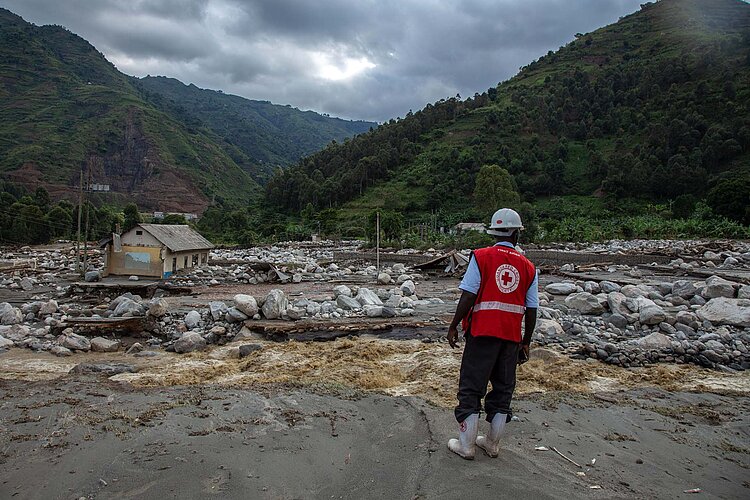
Training of emergency teams
- Red Cross Action Teams are specially trained teams of volunteers who are able to act quickly and effectively in local or regional emergency situations. They receive extensive training in first aid, rescue, psychosocial support and logistics.
- The National Disaster Response Teams are nationwide groups of volunteers who complement or support the state disaster management. Equipped with special equipment, they are deployed in evacuations, first aid operations and in emergency shelters. They support the coordination of national relief operations and provide logistical support.
The project
Project Objective: Community-based WASH and Health Assistance to South Sudanese refugees and host communities in West Nile, Uganda and strengthening of URCS epidemic preparedness
Region
Uganda, West Nile - Palorinya Settlements
Project volume
1.620.000 €
Duration
01.01.2023 - 31.12.2023
Funding
Federal Foreign Office, Global Project, GRC / Donations
Partner
Uganda Red Cross Society (URCS)
